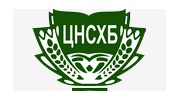Worobec С.D. The influences of A.V. Chayanov and Teodor Shanin on the English-language historiography of peasants in the Russian Empire // The Russian Peasant Studies. 2020. V.5. №4. P. 8-31.
DOI: 10.22394/2500-1809-2020-5-4-8-31
Annotation
In the 1980s, various influences were at play in producing a groundswell of interest in the Russian Empire’s peasantries, not least of which were the works of A.V. Chayanov and Teodor Shanin. The interdisciplinary social history movement, which eschewed traditional political history and its focus on elites, arose in the 1960s. The initial interest in biographies of Russian revolutionary men and women and histories of the nascent Russian working class and labor movement in order to explain the revolutions of 1905 and 1917 were suddenly supplemented and eventually displaced by an avid interest in peasants. The article examines the conclusions that the first-wave of scholarship on the peasantries of the Russian Empire produced. It shows how the ideas of Chayanov and Shanin remained dominant but were challenged by archival sources, histories on the micro- and regional levels, and attention to household tensions, gender issues, craft production and non-agricultural trades, growing literacy, as well as out-migration and return migration. By the mid-1990s, it became impossible to talk about a generalized autarkic, insular, cohesive as well as egalitarian Russian peasant society with traditional mores and customs that rebelled spontaneously because of its immiseration. The post-structural turn had furthermore begun to chip away at the veracity of statistics produced in the late nineteenth and early twentieth centuries and to question depictions of peasants which tended to emphasize their dark, primitive, and seemingly backward nature. Although this turn almost dried up interest in Russian peasant studies, a steady stream of historical works began to appear again in the first decade of the twenty-first century. We now have a firmer grasp of an economically and socially differentiated peasantry, the contours of the normal political accommodation that peasants made with the state (instead of always resisting it), and peasants’ utilization of the legal system to challenge their neighbors and family members. Furthermore, we know how a moral economy operated between the state and its peasant taxpayers and how and why zemstvo statistics produced Chayanov’s brilliant model of the dominant middling peasant household. At the same time, the agency with which Chayanov and Shanin infused the peasants has taken center stage in historical analyses.
Keywords
Chayanov, Shanin, peasantry, Russian empire, Russian peasant society, peasant household, peasant commune, traditional political history, post-structural turn, moral economy
About the author
Worobec Christine D., Distinguished Research Professor Emerita, Northern Illinois University. 1425 W. Lincoln Hwy., DeKalb, IL 60115-2828.
E-mail: This email address is being protected from spambots. You need JavaScript enabled to view it.
























